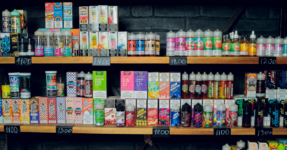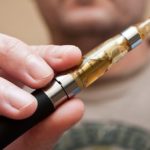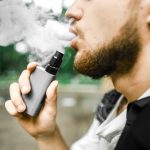Selling Nicotine Vapes Without Prescription is a Crime in NSW

Raids on around 60 retail stores in Sydney have led to the seizure of approximately 30,000 suspected nicotine-containing e-cigarettes, also known as nicotine vapes, as well as tobacco products suspected of being sold without paying tax, with an estimated value of $1.1 million.
The blitz was headed by the Therapeutic Good Association (TGA), working with NSW Health, which has warned retailers that selling such products is a criminal offence that can lead to hefty penalties, including potential prison sentences.
It is expected that samples of the seized vaping products will be forensically examined, and criminal charges could follow.
However, it is noted that nicotine vapes often omit reference to the presence of nicotine, which could make it more difficult for authorities to prove the offence.
Selling nicotine vapes is a crime in New South Wales
There is a web of laws that regulate the importation, sale, display and advertising of tobacco products, e-cigarettes and e-cigarette accessories, and non-tobacco smoking products in New South Wales.
These include the Public Health (Tobacco) Act 2008, the Public Health (Tobacco) Regulation 2022 and the Poisons and Therapeutic Goods Act 1966 (NSW) and its Regulations, as well as Commonwealth legislation including the Therapeutic Goods Act 1989 (Cth) and Customs Act 1901 (Cth), and instruments including the Therapeutic Goods (Poisons Standard) Instruments.
The laws often interact – in other words, refer to one another – in the creation of several criminal offences relating to e-cigarettes.
The Poisons Standard, which applies across Australia, makes clear that nicotine is only available by prescription is illegal unless it is used:
- In the preparation of nicotine gum or patches as an aid in withdrawal from tobacco smoking, or
- In tobacco that is prepared and packed for smoking.
Liquid nicotine and nicotine-containing e-cigarettes can only be supplied lawfully by way of prescription.
Anyone caught selling or otherwise supplying vapes that contain nicotine other than by way of prescription in New South Wales faces a maximum penalty of 6 months in prison and/or a fine of 15 penalty units.
One New South Wales penalty unit is currently equivalent to $110, which means the maximum fine is currently $1650.
The fine increases to 100 penalty units for individuals, or a first offence and up to 500 penalty units for a second offence if products are sold to a minor.
Businesses can be fined up to 500 penalty units for a first offence and 1000 penalty units for a subsequent offence of selling to a minor.
Nicotine vapes are prescription-only
Since mid-2021, vapes containing nicotine have only been available with a prescription from a doctor and dispensed from a pharmacy, which makes them more difficult to obtain.
Considering the number of ‘hoops’ a smoker has to go through to obtain a nicotine vape, it has to be said that purchasing good old-fashioned cigarettes or roll-your-own tobacco is probably easier, even though much more expensive and many believe more harmful due to the mix of carcinogenic substances they contain.
Some estimates suggest that traditional smoking costs 10 times more than vaping. And the Federal Government benefits considerably from the sale of tobacco – the tax currently sits at about 65% of the purchase price of cigarettes and tobacco, and will increase by five per cent a year over the next three years.
Vaping was originally hailed as a way for smokers to quit gradually. While they still contain toxic chemicals, vapes are considered to be ‘safer’ than smoking tobacco.
That said, there have also been numerous reported instances where people have been severely injured from burns, while using a vape.
And then there’s also community concern around the fact that young people seem to be taking up vaping in significant numbers.
Is vaping illegal?
E-Cigarettes are currently not approved by the Therapeutic Goods Administration in Australia, which is why they have been heavily regulated.
And while vaping is not a criminal offence in and of itself, it is subject to the same laws as traditional smoking which make it a prohibited activity in many areas across the State.
Section 6 and 6a of the Smoke Free Environment Act (2000) prohibits smoking and vaping in all indoor public areas and many outdoor public areas, including, but not limited to: within 10 metres of children’s play equipment, at public swimming pools, in spectator areas at sports grounds, on public transport, or surrounding waiting areas, within 4 metres of a n access door to a public building, and in commercial outdoor dining areas.
It is also illegal to smoke in your own car, with a child under 16 years of age in the vehicle with you.
On-the-spot fines
New South Wales Health inspectors enforce these regulations, and can issue a $300 on the spot fine for anyone smoking or vaping in a smoke free area.
Under section 14a of the Smoke Free Environment Act, police officers also have powers to act as “inspectors” in relation to law enforcement.
Section 7 of the Smoke Free Environment Act also outlines that building owners and occupiers must make sure that smoke free areas are well sign posted and clearly marked. The maximum penalty for not having appropriate signage in designated smoking and non-smoking areas is 5 penalty units for an individual, or 25 penalty units, in the case of a body corporate.
Further law reform is coming
Under current laws, in New South Wales, vapes that do not contain nicotine are legal, for adults (18 years and older) to buy and consume.
However, new laws, set to come into effect later this year will actually make it illegal for tobacconists, vape shops and convenience stores to sell any kind of vape. There are also strict regulations around importation of vape and vape products.
All government initiatives are aimed at stopping the next generation from even taking up the habit. In 2022, New Zealand passed what was considered to be “world first” legislation aimed at phasing out tobacco completely, and stopping anyone born after January 2009 from ever being able to legally buy cigarettes.
The law was due to be implemented mid-this year, but has now been scrapped, with the new finance minister, Nicola Willis, saying revenue from cigarette sales is needed to fund planned tax cuts.







